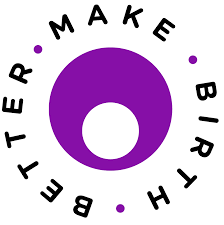
Birth trauma therapy
If the pregnancy, labour, or birth of your child has left you with overwhelming thoughts and emotions that are hard to manage, you are not alone. Many parents and birth partners struggle after a difficult or traumatic birth. Talking with a qualified counsellor who specialises in birth trauma therapy can help you process and make sense of your experience.
What is birth trauma?
Giving birth can be a powerful and emotional experience. But when things don’t go as expected – whether through emergency interventions, complications, or feeling unheard or unsafe – it can leave lasting emotional scars.
If you’ve been struggling since giving birth, you’re not alone, and it’s normal to feel anxious, low, or detached in the weeks and months afterwards. Therapy can help you process what happened, regain a sense of safety, and begin to reconnect with yourself and your baby.
Birth trauma refers to the psychological and emotional distress experienced after childbirth, often linked to events that felt frightening, overwhelming, or out of your control.
This might include:
- Emergency procedures, such as caesarean sections or instrumental deliveries
- Feeling powerless, ignored, or dismissed during labour
- Feeling discriminated against because of your age, race, sexual orientation or other characteristic
- Experiencing physical injury or medical complications
- Fear for your baby’s or your own safety
- Difficult interactions with medical professionals
- Loss, stillbirth, or neonatal intensive care experiences
Even if others have said your birth was “fine,” your feelings are valid. Birth trauma is about how you experienced the event and not how it appeared to others.
Who can experience birth trauma?
Birth trauma is often associated with the person giving birth, but its impact can reach further. Anyone who witnesses a traumatic birth – including birth partners, family members, and even healthcare staff – can also develop symptoms of trauma. This makes birth trauma therapy an important source of support not only for mothers and birthing people, but for partners and loved ones who may also be struggling.
Signs You Might Be Experiencing Birth Trauma
Everyone’s experience is unique, but you might notice:
- Flashbacks or intrusive memories of the birth
- Avoiding anything that reminds you of the experience
- Difficulty bonding with your baby
- Feelings of guilt, shame, or failure
- Hypervigilance or anxiety
- Sleep problems or nightmares
- Low mood, depression or emotional numbness
If you recognise some of these feelings, you don’t have to face them alone. Support is available.
How therapy could help you
Therapy can help you make sense of what happened and start to process the emotions surrounding your birth experience.
I work using psychodynamic and relational approaches, drawing on somatic awareness and neuroscience principles to help you reconnect mind and body safely. Sessions are collaborative – we go at your pace, gently exploring your story and helping you find new ways to understand and manage your feelings.
Together, we might focus on:
- Giving you space to tell your story
- Understanding how the experience affected you emotionally and physically
- Processing grief, fear, or anger
- Rebuilding self-trust and confidence
- Strengthening connection and attachment
- Supporting relationships with your baby, partner, or family
- Explore how birth myths and expectations might be impacting you
Healing from birth trauma takes time, but therapy can help you begin to feel more grounded and in control again.

I have completed the Birth Trauma Training Programme run by Make Birth Better, in addition to my core counselling training. This means I am specially equipped to support parents and partners who are living with the ongoing effects of traumatic birth experiences. And in 2025 I became a Make Birth Better Champion.
What to Expect in Sessions
I offer in-person birth trauma therapy in Brighton and online counselling for parents across the UK. Sessions last 50 minutes and usually take place weekly.
In therapy, you’ll have a consistent, private space where you can talk openly about your experiences. There is no pressure to share everything at once, we go gently, following your pace and comfort level.
You might find that, over time, the memories and emotions surrounding your birth feel less consuming, and you begin to reconnect with yourself and your body in a new way.
Support for pregnancy loss, miscarriage and termination
Not every pregnancy ends with birth — and when it doesn’t, the emotional impact can still be profound. If you’ve experienced a miscarriage, pregnancy loss, or termination, you may be left with feelings that are painful, confusing or difficult to share.
Even when others say “it wasn’t your fault” or “you did the right thing,” you might still carry emotions such as sadness, guilt, anger, relief, or numbness. These are all natural responses to a complex experience.
Therapy provides a safe, non-judgemental space to talk about what has happened and how it has affected you physically, emotionally, and relationally. Together we can explore:
- The grief and loss that follow miscarriage or pregnancy loss
- The mixed emotions that can arise after termination
- The ways these experiences may influence self-esteem, relationships or future pregnancies
- Gentle approaches to healing and self compassion
You don’t have to go through this alone. Whether your experience was recent or many years ago, therapy can help you find understanding, release, and a sense of peace.
Frequently Asked Questions about Birth Trauma Therapy
What are the signs I might need birth trauma therapy?
If you often relive your birth experience, feel detached from your baby, or avoid conversations or reminders about the birth, therapy can help you begin to process what happened in a safe space.
Can my partner also attend therapy?
Birth trauma can affect partners too. While my sessions are for individual clients, partners are encouraged to seek support as well, either individually or together through a family-focused therapist.
Is online therapy effective for birth trauma?
Yes. Online birth trauma counselling offers the same level of care, confidentiality, and connection as in-person sessions, with the added flexibility to access support from home. Many new parents find this especially helpful in the early months.
Taking the first step
If you are struggling with difficult feelings before, during, or after the birth of your child, support is available.
Would you like to talk to someone about your experiences? Get in touch today to arrange a confidential phone call with me and take the first step towards recovery and healing.